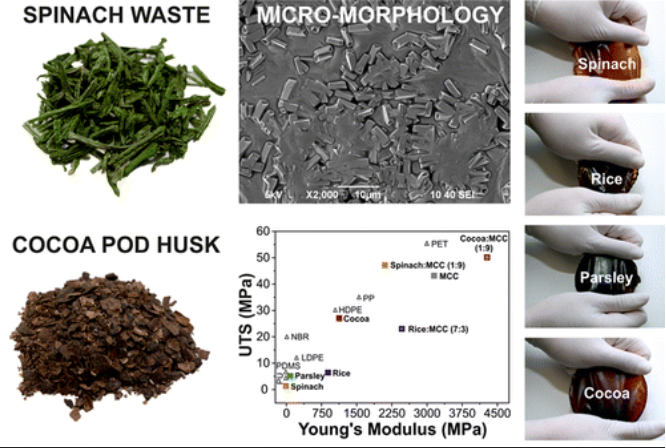Direct Transformation of Edible Vegetable Waste into Bioplastics

"Bioplastics with a wide range of mechanical properties were directly obtained from industrially processed edible vegetable and cereal wastes. As model systems, we present bioplastics synthesized from wastes of parsley and spinach stems, rice hulls, and cocoa pod husks by digesting in trifluoroacetic acid (TFA), casting, and evaporation. In this way, amorphous cellulose-based plastics are formed. Moreover, many other natural elements present in these plants are carried over into the bioplastics rendering them with many exceptional thermo-physical properties. Here, we show that, due to their broad compatibility with cellulose, amorphous cellulose can be naturally plasticized with these bioplastics by simply mixing during processing. Comparison of their mechanical properties with that of various petroleum based synthetic polymers indicates that these bioplastics have equivalent mechanical properties to the nondegrading ones. This opens up possibilities for replacing some of the nondegrading polymers with the present bioplastics obtained from agro-waste."
Criado/Created: 14-08-2021 [21:52]
Última actualização/Last updated: 09-10-2023 [15:52]

(c) Tiago Charters de Azevedo